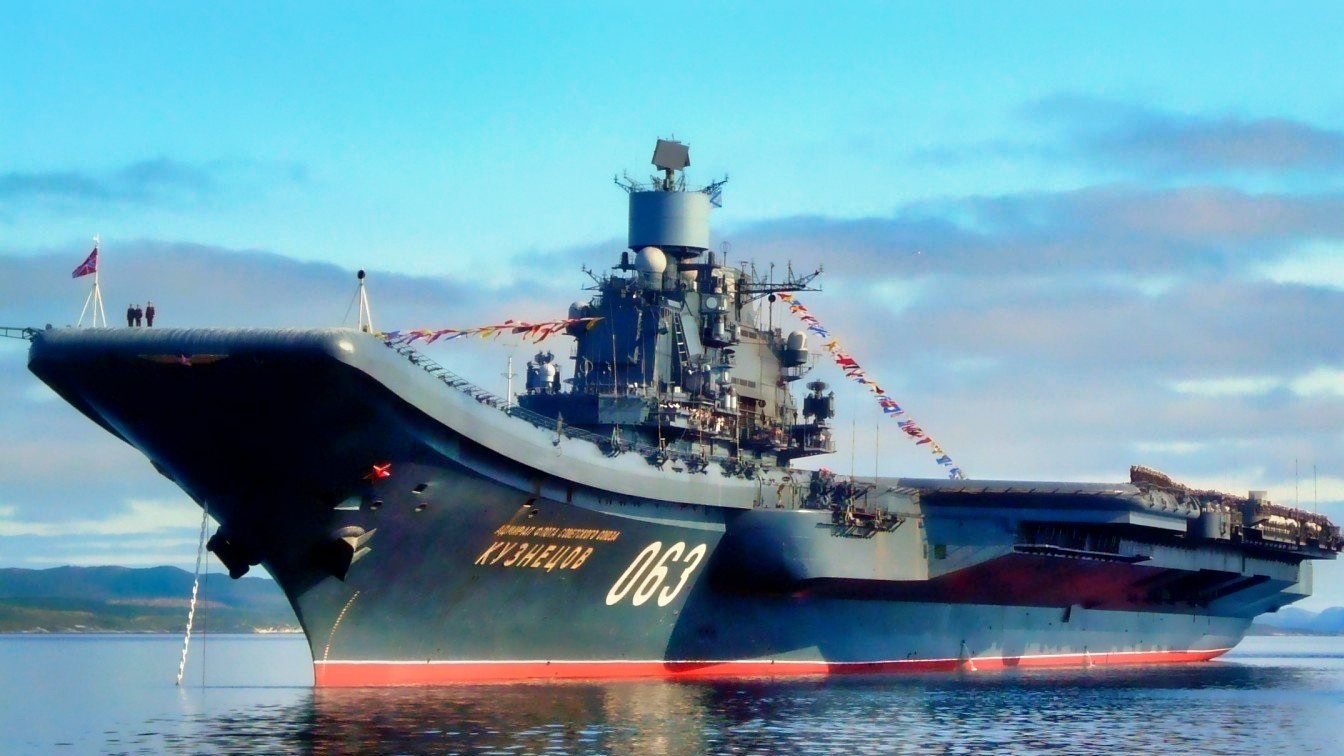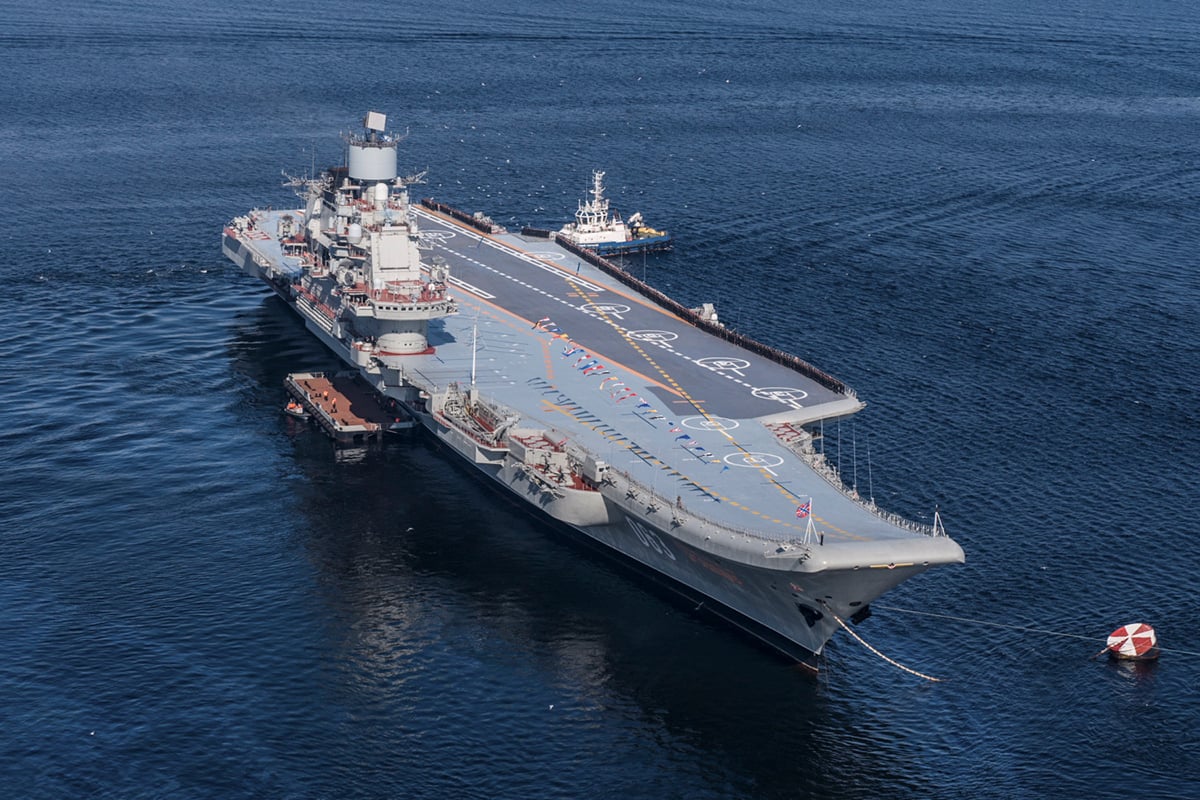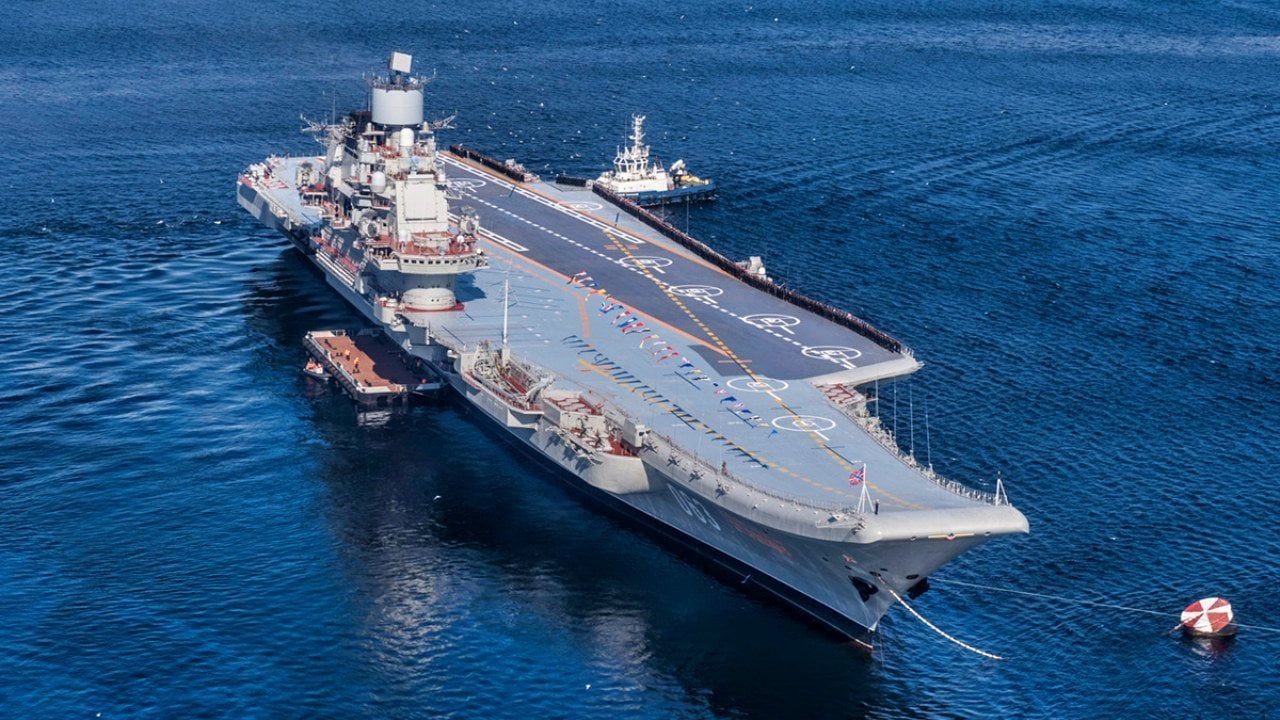Admiral Kuznetsov: Russia's Only Aircraft Carrier Could Be Its Last
Since her introduction to service during the Cold War, Russia’s only aircraft carrier has suffered from a plague of unfortunate events. Fires, production delays, and serious mishaps have prevented Admiral Kuznetsov from functioning as initially intended.
Admiral Kuznetsov Update: Russia’s sole aircraft carrier has been on the brink of failure for over a decade.
Analysts have even begun to question whether or not Admiral Kuznetsov will ever sail again.
Since her introduction to service during the Cold War, Russia’s only aircraft carrier has suffered from a plague of unfortunate events. Fires, production delays and serious mishaps have prevented the Admiral Kuznetsov from functioning as initially intended.
Over the summer, Russia’s primary state-run media outlet TASS reported that the carrier could re-enter service by late 2024. Considering the Kuznetsov’s riddled history, however, this timeline is questionable.
The History of the Admiral Kuznetsov
The Kuznetsov was constructed by the Black Sea Shipyard in Nikolayev during the 1980’s. Serving as the flagship of the Soviet Navy until the dissolution of the USSR, the carrier later became fully operational with the Russian Navy in the mid-1990’s.
Soviet engineers originally planned to build two aircraft carriers in the Admiral Kuznetsov class, however, her sister ship Varyag was still incomplete when the USSR collapsed.
Unlike Western ships which are typically powered by gas turbines or nuclear power, the Kuznetsov is conventionally powered and relies on mazut as its fuel source. The thick and tarry substance appears to engulf the carrier when she sails, a limiting factor that makes the Kuznetsov’s travel less efficient. Additionally, enemy ships can spot the carrier from miles away due to the fumes of black smoke that surrounds her on the move.
Since Mazut is a particularly challenging fuel source, proper piping and boiler installations are required to ensure it can be efficiently preheated and pressurized. Unfortunately, insufficient piping incorporated in the carrier during her construction has made it difficult for her boilers to function at full capacity.
In terms of armaments, Russia’s sole carrier is fitted with two dozen rotary-style vertical launch systems with eight missile cells each. As detailed by The Drive, “These fire the SA-N-9 "Gauntlet" point air defense missile, and a whopping 192 of these missiles are carried in all.

In addition, the ship bristles with a virtual wall off close-in weapon systems (CIWS), including six AK-630 cannons and no less than eight (notoriously formidable) Kashtan missile/cannon CIWS systems.” Additionally, the Kuznetsov is equipped with anti-submarine/anti-torpedo rocket systems.
Problems Associated with the Admiral Kuznetsov
The Kuznetsov’s lacking construction is not the only shortcoming associated with the aircraft carrier. Back in 2018, one worker on board the ship was killed when a floating crane fell into the carrier’s deck.
Less than one year later, a fire ignited by a welding incident in the vessel’s engine room killed two workers and sent 14 others to the hospital.

The Kuznetsov’s deployment history is equally bleak. In the thirty-eight years she has been in service, the Kuznetsov has been deployed to combat one time.
While in Syria back in 2016-2017, two airframes were lost when faulty arresting wires failed to secure their landings on the carrier’s deck.\

The Admiral Kuznetsov may be Russia’s only aircraft carrier, but she may also be the last.
About the Author: Maya Carlin
Maya Carlin, National Security Writer with The National Interest, is an analyst with the Center for Security Policy and a former Anna Sobol Levy Fellow at IDC Herzliya in Israel. She has by-lines in many publications, including The National Interest, Jerusalem Post, and Times of Israel. You can follow her on Twitter: @MayaCarlin.


